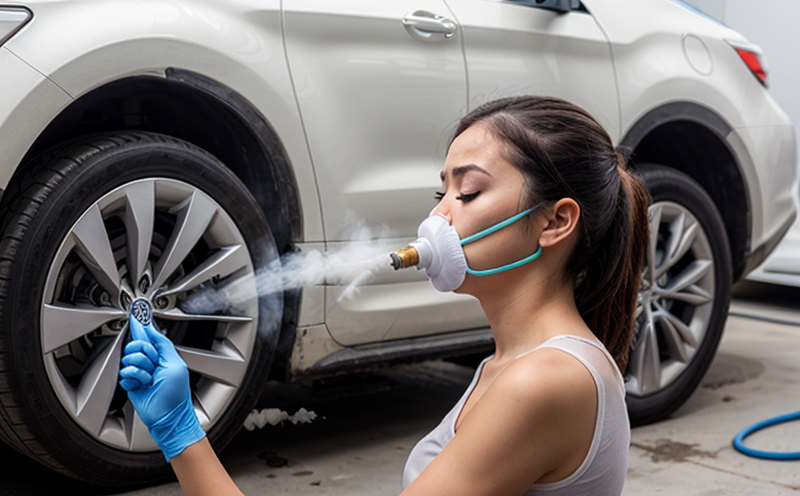DIN 717 Formaldehyde Emission Testing of Wood Products
The DIN 717 standard is a pivotal method used in Germany and other parts of Europe for formaldehyde emission testing, particularly for wood products. This stringent protocol ensures that the levels of formaldehyde released by materials like particleboard, chipboard, and fiberboard meet regulatory standards, promoting healthier indoor environments.
Formaldehyde, known as a potent allergen, can cause various health issues including irritation to the respiratory tract and eyes. As such, rigorous testing is crucial for maintaining safety standards across industries that use wood products in furniture manufacturing, construction, and interior design sectors. DIN 717 addresses this need by providing a standardized method to measure formaldehyde emissions from solid wood panels.
The testing process involves placing the sample under controlled conditions where it gradually releases formaldehyde into the surrounding air. The concentration of formaldehyde in the air is then measured using a gas chromatograph, which provides accurate quantification of the emitted levels over time. Compliance with DIN 717 not only ensures product safety but also enhances brand reputation by demonstrating commitment to high standards.
Given its importance, Eurolab offers comprehensive testing services that adhere strictly to DIN 717 requirements. Our team utilizes state-of-the-art equipment and follows precise procedures to ensure reliable results. This approach helps our clients maintain compliance with international regulations while also gaining insights into potential improvements in their products.
Applied Standards
- DIN 717:2019-11 - This standard specifies the procedure for determining the formaldehyde content released by solid wood panels into air at a temperature of (60 ± 2) °C.
- DIN EN ISO 16018 - While not specifically for DIN 717, this standard complements it by providing additional guidelines on the testing methods that can be used.
Eurolab Advantages
At Eurolab, we pride ourselves on offering unparalleled formaldehyde emission testing services. Our experienced team of experts ensures accuracy and reliability in every test conducted according to DIN 717 standards.
- Innovative Equipment: We use cutting-edge gas chromatographs and other advanced instrumentation to ensure precise measurements.
- Comprehensive Analysis: Our services go beyond mere compliance; we provide detailed reports that offer valuable insights into product performance.
Competitive Advantage and Market Impact
Adhering to DIN 717 can significantly enhance a company's competitive edge in several ways:
- Reputation Enhancement: Compliance with international standards like DIN 717 boosts brand image and trust among consumers.
- Market Access: It opens doors to markets that require stringent formaldehyde emission controls, such as the European Union.
Furthermore, by ensuring compliance through rigorous testing, companies demonstrate their commitment to sustainability and public health. This can lead to increased market share and customer loyalty.





